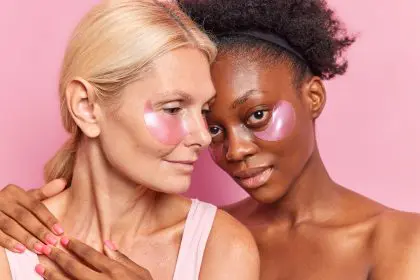 Hardly a day passes when some worldly nuance doesn’t remind you of a song that meant something to you or transports you in time and space to that special moment, that special place. You’re certain, if you were fortunate enough to know or be in the company of those prolific songwriters and composers, that you might glean what lies beneath the lyrics and the meaning of the moments behind the music.
Hardly a day passes when some worldly nuance doesn’t remind you of a song that meant something to you or transports you in time and space to that special moment, that special place. You’re certain, if you were fortunate enough to know or be in the company of those prolific songwriters and composers, that you might glean what lies beneath the lyrics and the meaning of the moments behind the music.
If we broke musical phenomenon and pop icon status down to a scientific formula, it would be: critical mass + career longevity + memorable sound = unforgettable. In the case of hip-hop pioneers and cultural mainstays Salt-N-Pepa, I am bewildered that the formula hasn’t catapulted them to the top of the list of music legends. Had they orchestrated more mainstream and commercial givings, like so many of their predecessors at the time did, would their legacy in the genre and the industry be better cemented, more documented? But they did it their way and enjoyed what they did and, hopefully, when they assess their careers and examine their long list of accomplishments, there will be great satisfaction in their findings.
The groundbreaking duo is currently on tour and visited the offices of rolling out between city engagements. That was one of those moments I referenced earlier when I was reminded of the time I laid eyes on two young women taking the stage to deliver this provocative message: Push. It may have been offensive to some — bordering on vulgarity in the minds of others — yet completely understood by most of the people within earshot. The graphic gyrations by no means define who these the women are, but they definitely added to their allure and our fascination with them. They pushed the limits. And then, we saw Salt-N-Pepa as an anomaly of sorts, thanks to other hit songs like “Respect.” And then, there was “I’ll Take Your Man,” which throngs of women adopted as their personal anthems, including a slew of reality TV ex-housewives, apparently.
I wonder about those Salt-N-Pepa moments in our lives when we think about the level of respect we are afforded by our lovers and whether or not we, too, are pushing the boundaries of love and understanding, as we know them. I wonder if we really even care. Have we diminished the value and validity of love? What is the expectation for emotional commitment? Looking around, one might come to feel that we just don’t really give a damn and that black women are on the offensive (which is actually a defense), espousing diatribes about how they don’t need it and are satisfied with just having a man in their beds.
The dilemma black women face in light of these dwindling prospects and how the situation is perceived by white America is evident in Rush Limbaugh’s ludicrous statements about first lady Michele Obama.
Our eerie silence regarding the decimation of the character of black women is disturbing and totally unacceptable. We even allow our detractors to take exception with the fact that Halle Berry won an Academy Award. It’s like we’re emotionally catatonic when our women are slandered, exploited and degraded.
What’s worse is the fact that we participate and perpetuate the crime. Black music and television industry executives are equally if not more guilty than their white counterparts for misogynistic, stereotypical depiction of black women for financial gain, and that makes us all morally culpable. The whole notion is a moral contradiction to the revered image of the black woman as a strong matriarch and unyielding supporter of family values.
Why taint and tarnish the images of African American women and, even when we are not actively involved in the degradation, why stand aside silently? There is no intellectual discussion in the schools about the value of black women. Instead, we send her mixed messages. I think we need a little bit more seasoning added to that message — a dash of salt and a sprinkling of pepper, if you will. And although, at this point, I’m not certain about the place they will occupy in music historically, it was wonderful to visit, reminisce and discuss the state of music with them. For my efforts, I was rewarded with a comforting kiss on the cheek — another affirmation of the realness and decency of these women.
I understand why the caged bird sings. I understand Nicki Minaj and her public persona, and I even get Sister Souljah. I understand Michelle Obama and her refusal to stoop to the level of her critics. And I understand that what we are missing is a celebration of every one of them and all of us. From Raven–Symoné to Aaliyah, it’s good to ask for — no, demand — regardless of your physical attributes — a little respect and, yet, we’re caught up in her size. Don’t allow yourself to be distracted by the mundane and mediocre trappings that purport your having arrived at some ridiculous or imagined status. Don’t allow current day images to distort the picture of real black women — our mothers and grandmothers who paved the way for daughters and sons to move forward beyond their stations to better lives. To truly love black women, we must revere them, we must celebrate them, and we must grow in our appreciation of them.
Peace. –Munson Steed









